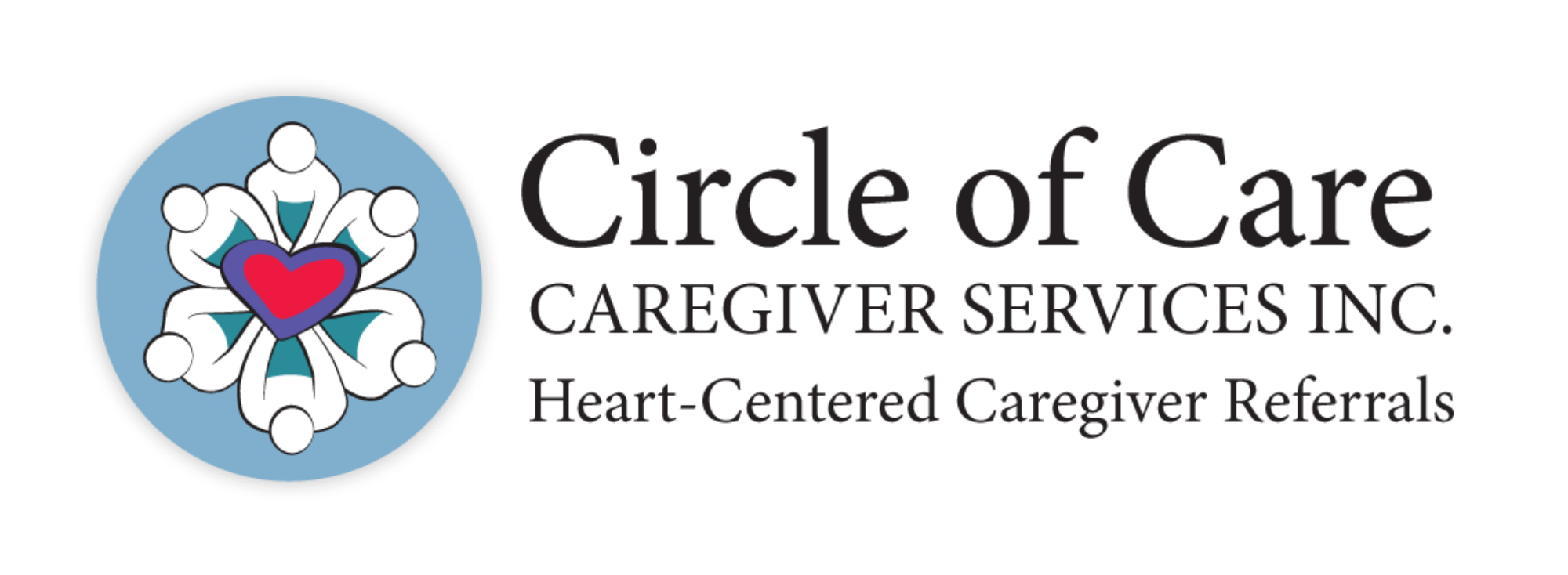Q: When do I know that I need to bring in caregiving assistance?
A: This is a very personal decision, different for every family. Generally, a good time to bring in assistance is when family members find that they are overwhelmed, or that they cannot continue the activities that they need to sustain to stay healthy and happy themselves. If family members feel that they or their loved one(s) may be unsafe, it is definitely time to get help.
Q: How does finding a caregiver through Circle of Care work?
A: Just give us a call. We will meet with you to help you assess your needs, and refer one or more caregivers to you that have already been interviewed and pre-screened to meet our high standards, and are the best fit for your particular requirements.
Q: How does the registry work, as opposed to an agency?
You approve, hire and pay our carefully selected caregivers directly. Circle of Care will bill you for referral fees as detailed on our rate page. Should a caregiver call in sick, we will do our utmost to refer an immediate substitute at your request, and should a caregiver not prove a good fit, we will refer a different caregiver.
An agency selects people and sends them to you, and you pay the agency an hourly total.
Q: Should I hire a caregiver through you, or go through an agency?
A: Clients often tell us that they are very happy with the quality and dependability that they get from a qualified, experienced referral from us. Plus, an elderly person is frequently happier and better cared for with a consistent, regular caregiver or caregiver team, as opposed to getting less experienced or consistent staffing from an agency.
Generally, the costs per hour are comparable whether you go through us or through an agency. It is important to keep in mind that with Circle of Care’s direct-hire registry model, more of the money goes to the caregiver, which is why we are able to refer very high quality, experienced personnel.
Q: How do you select caregivers?
A: We have a five-step process by which we select caregivers. Checks of their backgrounds, skills, and references are only the beginning; we only allow experienced, compassionate caregivers who are drawn to the work as a calling onto our registry. We don't refer anyone who we wouldn't be comfortable hiring to care for our own families. This is why we are a small company; only a small percentage of caregivers who apply are accepted into our registry.
Q: Can I use my long-term care insurance to pay for a caregiver that I hire?
A: In some cases, we have seen long-term care insurance pay for direct-hire caregivers. Please call us to discuss your specific situation.
Q: Do I need to hire a caregiver as an employee?
A: You may wish to consult your financial advisor as to whether you need to pay a direct-hire caregiver as a household employee. If so, specialized payroll services such as Rowell Payroll can help you set up an easy-to-use, custom payroll account. Even with such a service, the per-hour cost of a direct-hire caregiver is comparable with that of an agency.
Q: Do caregivers only work in-home, or can they work in facilities as well?
A: We have referred many caregivers to assist elders in various types of facilities. Many of our caregivers have experience working with facility staff to make an elder's life better, and advocate for the elder's needs in the facility. Plus, sometimes a bit of extra help can maintain someone at a certain level of care. For example, someone who really enjoys their assisted living apartment might be able to remain there with some extra help, rather than go on to memory care.
Q: What is care management, and when might someone need it?
A: If you are far away from your loved one that needs care, or you are overwhelmed by having to juggle all of their medical appointments, therapies, and other needs, then care management is for you. A care manager will schedule and track medical and other appointments, make sure that all members of the health care team are in communication with one another, and keep you informed of all treatments and changes, in addition to services as diverse as locating housing or arranging transport. This is an invaluable service for someone with complex medical and/or logistical needs, to make sure that all needs are met and nothing falls through the cracks.
Q: I'm still not sure I should bring in a caregiver. Where else can I look for advice?
A: There are links on our resource page to help families make decisions such as this. We are also happy to have a frank, pressure-free conversation with you about the costs and benefits of bringing in a caregiver.
